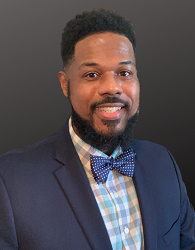Historically, seeking therapy in the Black community has been a taboo subject. Due to more conversations on social media, celebrities disclosing their own mental health, and more Black professionals entering the field, we have seen the tide turn.
Racism is a factor
Black Americans are becoming more open to seeking therapy, but some challenges remain. For example, racism is pervasive in America and this can cause challenges navigating the mental health system. When we consider racism, it is important to understand that racism occurs in many forms. Several types of racism have been described that may impact access to care among the Black community: individual-level racism, which is synonymous with racial prejudice (assuming that one’s self is superior to other races); institutional racism, which is revealed in and practiced within organizations and institutions leading to discrimination of groups of people; and cultural racism, which is seen in the assumed superiority of a language or dialect, values, beliefs, worldviews, and cultural artifacts dominate in a society (Jones & Neblett, 2019; Turner, 2019).
Accessibility, availability, and appropriateness of services are additional barriers
In addition to the impact of racism on access to services, other barriers may influence use of treatment among Black families. Some research (e.g., Turner, 2019; Turner, Malone, & Douglas, 2019) has noted the role of multiple factors associated with treatment seeking, including accessibility factors (structural variables that may influence an individual’s ability to access treatment), availability factors (examines access to culturally competent services), appropriateness factors (examines how individuals view mental health problems as requiring treatment), and acceptability factors (captures variables such as stigma and cultural mistrust).
Over the last year, the pandemic and racial injustice may have amplified these barriers and placed more Black youth at increased risk for limited access to therapy. It may be particularly difficult for Black parents to feel comfortable seeking therapy from a non-Black therapist due to mistrust. It is more important than ever for the mental health community to understand these barriers and transform systems to ensure the needs of Black youth are met.
The impact of COVID-19 on Black youth
While anxiety, depression, and suicide in children and teens in America have been rising in the last few years, the current COVID-19 pandemic has exacerbated these numbers. In regards to depression, 9.7% of youth in the U.S. have severe major depression, compared to 9.2% in last year’s dataset. While this is true across the board, certain historically marginalized groups have felt the brunt of the impact. While white youth still die by suicide at a higher rate, the rate of Black youth suicide is increasing faster than any other racial or ethnic group.
Black children and adolescents are overrepresented among families with social inequities. The pandemic-related physical health, mental health, economic and social consequences increased stress in black families. Some factors contributing to increased mental health concerns are listed below:
- Black Americans are more likely to know individuals who have died from COVID-19. This includes a disproportionate number of Black youths who have experienced the loss of a loved one.
- Black youths may have adverse experiences in the home. There is a well-known impact of unemployment and increased financial strain that contributes to child neglect and domestic violence.
- The lack of social connectedness can exacerbate anxiety and depression among children and teens.
Tackling Current Approaches to Training & Treatment to Improve Care
“Put on Your Own Oxygen Mask First”
As mental health providers, we are not exempt from feeling the effects of COVID-19. It is important that we are checking in with ourselves to prevent burnout. This is especially true at the trainee stage. When you travel on a plane, you hear the instructions from flight attendants: “should the cabin lose pressure, oxygen masks will drop from the overhead area. Please place the mask over your own mouth and nose before assisting others.” The same concept goes for working with Black youth and other historically marginalized groups. While “putting on your oxygen mask first” can mean engaging in self-care practices, it also can mean doing your own homework to better serve Black youth.
Recognize and Mitigate Racial Trauma
Mental health providers have an important role to play in helping to mitigate and heal the impact of racial trauma on Black communities in the context of COVID-19. Recognizing what is racial trauma can be a first step. Many accounts from student trainees, colleagues, and professionals demonstrate a lack of awareness, knowledge, and the practical skills necessary to competently address racial trauma in mental health settings. To our knowledge, few training programs explicitly cover this content in their coursework. This often places the burden on professionals to learn after entering the field. Furthermore, it can lead to a risk of inadequate care for Black youth.
In our view, it is important that institutions are implementing new procedures, training, and decisions in response to improving care with historically marginalized groups. When providing clinical care, it is critical to consider cultural identity, with a focus on inherent strengths and previous experiences of resiliency of the individual and their community. It is important to establish a Racism Recovery Plan (RRP) to learn how to identify, cope, and manage racial trauma.
Broaden Treatment Approaches with Black Youth
Regarding treatments and interventions, we urge mental health professionals to also broaden their approaches to treatment with Black youth. Given the limited diversity of the profession, it is important for all therapists to improve their ability to work with diverse therapy clients. The field generally focuses on cultural competence through increasing awareness around biases and cultural differences. Williams (2019) articulates that simply teaching facts about cultural differences between racial and ethnic groups is not adequate to achieve cultural competence. Training at the graduate level and post-graduate level should move to more experiential activities.
Experiential activities can help to reduce inter-racial anxieties through disconfirmation of cognitive distortions and habituation to feared stimuli such as talking about race (Williams, 2019). Finally, more work needs to be done on examining the use of culturally appropriate treatments based on principles within Black psychology that integrate the whole person, spirituality, and community (Belgrave & Berry, 2016).
If we truly want to transform the system and meet the needs of underserved communities, we must begin to shift our approaches to training and educating mental health providers.
 Erlanger “Earl” Turner, Ph.D. (He/Him) is a licensed psychologist and an assistant professor of psychology at Pepperdine University. He is also Executive Director and Founder of Therapy for Black Kids. His research focuses on mental health among racial and ethnic communities, access to behavioral health services, and the impact of racism on mental health. He has served in numerous roles within the American Psychological Association (APA) including served as the 2017 Chair of the APA Board for the Advancement of Psychology in the Public Interests and on the Board of Directors for APA Division 53 (Society for Clinical Child and Adolescent Psychology). Dr. Turner is also the Past-President of the Society for Child and Family Policy and Practice and is the first African American male to serve in that role.
Erlanger “Earl” Turner, Ph.D. (He/Him) is a licensed psychologist and an assistant professor of psychology at Pepperdine University. He is also Executive Director and Founder of Therapy for Black Kids. His research focuses on mental health among racial and ethnic communities, access to behavioral health services, and the impact of racism on mental health. He has served in numerous roles within the American Psychological Association (APA) including served as the 2017 Chair of the APA Board for the Advancement of Psychology in the Public Interests and on the Board of Directors for APA Division 53 (Society for Clinical Child and Adolescent Psychology). Dr. Turner is also the Past-President of the Society for Child and Family Policy and Practice and is the first African American male to serve in that role.
 Nekolas “Neko” Milton (He/Him) is a PsyD candidate at the University of San Francisco. He is currently completing his predoctoral internship at the Center for Multicultural Training in Psychology (CMTP) at Boston Medical Center and the Boston University School of Medicine. He is currently the student representative on the APA Division 37 Board of Directors. His clinical interests include working with infant and early childhood mental health. He will be a postdoctoral fellow at UCLA TIES for Families providing culturally responsive trauma-informed care to foster/adoption youth. His research interests include cultural identity development and mental health concerns among Black and Deaf communities. Neko’s future goals include providing culturally competent services as a health service psychologist working in an integrated hospital setting or community mental health center, with a focus on providing services to underserved populations.
Nekolas “Neko” Milton (He/Him) is a PsyD candidate at the University of San Francisco. He is currently completing his predoctoral internship at the Center for Multicultural Training in Psychology (CMTP) at Boston Medical Center and the Boston University School of Medicine. He is currently the student representative on the APA Division 37 Board of Directors. His clinical interests include working with infant and early childhood mental health. He will be a postdoctoral fellow at UCLA TIES for Families providing culturally responsive trauma-informed care to foster/adoption youth. His research interests include cultural identity development and mental health concerns among Black and Deaf communities. Neko’s future goals include providing culturally competent services as a health service psychologist working in an integrated hospital setting or community mental health center, with a focus on providing services to underserved populations.
Sources
Belgrave, F. Z., & Berry, B.M. (2016). Community approaches to promoting positive mental health and psychosocial well-being. In A.M. Breland-Noble, C.S. Al-Mateen, & N.N. Singh (Eds.), Handbook of mental health in African American youth. Springer International Publishing.
Jones, S.C.T., & Neblett, E.W. (2019). The impact of racism on mental health of people of color. In M. Williams, D. Rosen, & J. Kanter (Eds.), Eliminating race-based mental health disparities: Promoting equity and culturally responsive care across settings. New Harbinger Press.
Turner, E.A. (2019). Mental health among African Americans: Innovations in research and practice. Rowman & Littlefield.
Turner, E.A., Malone, C., & Douglas, C. (2019). Barriers to mental health care for African Americans: Applying a model of treatment initiation to reduce disparities. In M. Williams, D. Rosen, & J. Kanter (Eds.), Eliminating race-based mental health disparities: Promoting equity and culturally responsive care across settings. New Harbinger Press.
Williams, M. T. (2019). Cultural competence 101: Teaching about race and racism. In M. Williams, D. Rosen, & J. Kanter (Eds.), Eliminating race-based mental health disparities: Promoting equity and culturally responsive care across settings. New Harbinger Press.


